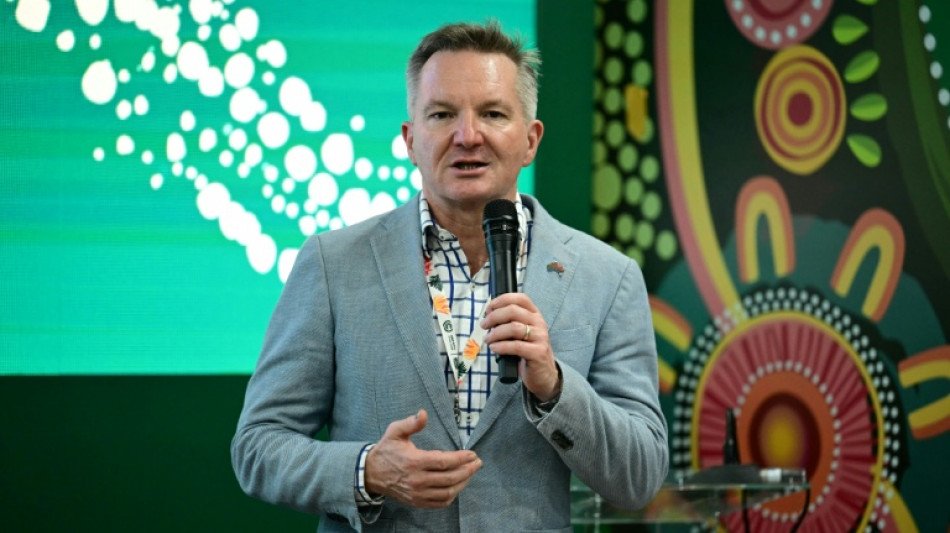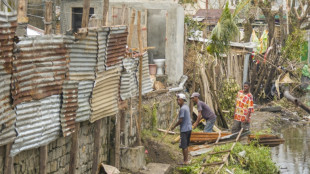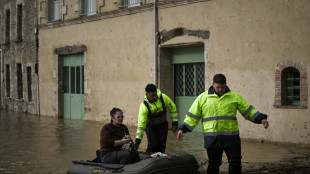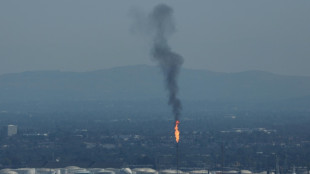

Australia yields to Turkey in standoff over next climate summit
Australia has conceded defeat in a bruising diplomatic struggle over hosting rights to next year's UN climate summit, with Turkey prevailing despite holding a much weaker hand.
Exactly who presides over the blockbuster global event is still in play, but Australia's long-running campaign to bring COP31 to Adelaide is over.
"Obviously, it would be great if Australia could have it all. But we can't have it all," said a dejected Chris Bowen, Australia's climate minister, in Brazil where this year's climate talks rumble on.
Just two days earlier in the rainforest city of Belem, where the unresolved standoff with Turkey risked a spat on the world stage, Bowen declared confidently: "We're in it to win it."
But despite its bid enjoying overwhelming support, Australia could not get around a quirk of the UN system -- that consensus is required to win hosting rights.
Turkey refused to withdraw, leading to a tug-of-war in Belem that tested Brazil's insistence that global climate solidarity was alive and well.
Without one side backing down, or another arrangement being made, COP31 would default to Germany, which hosts the UN climate body's offices -- something many wanted to avoid, not least the Germans themselves.
A highly-unusual alternative was brokered: Turkey would host the 200-nation summit, but Australia would steer the marathon negotiations.
"I know some people will be disappointed in that outcome," said Bowen but "significant concessions are what's required when you try to find consensus."
- Turkey triumph -
It is a major coup for President Recep Tayyip Erdogan, who has pursued an assertive, go-between diplomacy that positioned Turkey as a mediator in conflicts from Ukraine to Gaza and the Horn of Africa.
The summit will be held in the Mediterranean resort city of Antalya, where Turkey already hosts a major diplomatic forum every January that serves to showcase the soft power image that Ankara wants to project.
COP summits attract world leaders, business executives, and tens of thousands of visitors, and hosting the gala events has become a point of prestige.
Rival COP-hosting bids are not unprecedented, but none had ever come down to the wire like this.
Turkey insisted it had a competitive bid, despite lacking the numbers behind Australia, which had pledged to co-host with climate vulnerable Pacific Island nations.
Under COP rules, hosting duties rotate through five blocs and in 2026 that fell to the Western European and Other States -- two dozen mostly European countries but also Turkey, Australia and Canada, among others.
On Thursday, at a meeting to break the impasse, Turkish diplomats stood together alone some distance from the other representatives, with both groups entering the room through different doors.
The meeting was chaired by German state secretary for the environment Jochen Flasbarth, who told AFP the co-hosting proposal was "innovative" and he did not hear opposition to it.
But it had yet to be put in writing -- and only then would he reconvene the group to make a decision.
- 'Disappointed' -
But close observers said it was unlikely Australia could accept anything other than the COP31 presidency -- and hard to imagine Turkey would not agree to the terms.
"It would seem remarkable that a country that had no supporters other than themselves in the regional group that decides would be able to both walk away with physical hosting of the COP, as well as the all-important presidency," said a diplomatic source close to the discussions.
Simon Bradshaw from Greenpeace Australia Pacific, told AFP that "whatever the venue, whatever the arrangement, the task remains the same: phasing out fossil fuels and ending deforestation."
But the mood was less upbeat in the Pacific Island region, where rising seas and extreme weather threatens the very survival of many small island states.
"We are all not happy. And disappointed it's ended up like this," Papua New Guinea's Foreign Minister Justin Tkatchenko told AFP as the news broke.
jmi-np-fo-ia/des
潘-H.Pān--THT-士蔑報




